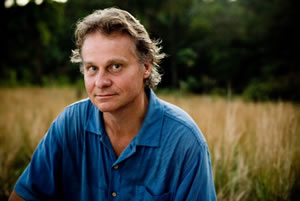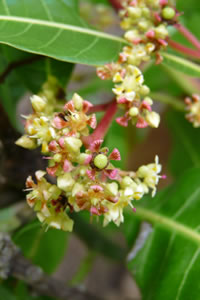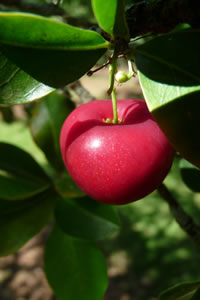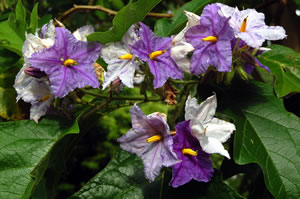Studying Plants And People
 Wade Davis biologist, anthropologist, ethnobotanist and documentarian of people, plants and places brings a poetic passion to his work.
Wade Davis biologist, anthropologist, ethnobotanist and documentarian of people, plants and places brings a poetic passion to his work.
Perhaps that’s why the National Geographic Explorer-in-Residence will receive the Fairchild Medal, a National Tropical Botanical Garden award, later this week.
Though NTBG has its headquarters and three gardens on Kaua’i, the award will be presented at a black-tie dinner at NTBG’s Florida garden, The Kampong, in Coconut Grove. The Kampong is the former estate and private garden of the award’s namesake, David Grandison Fairchild, whose work resulted in the introduction of tropical plants of economic importance to the United States including sorghum, nectarines, bamboo, date and mangoes, as well as approximately 75,000 selected varieties, including Durum wheat, Japanese rices, Sudan grass, Chinese soy beans, Chinese elms, persimmons and pistachios, according to Jon Letman, editorial and production assistant at NTBG here. (Fairchild, incidentally, was married to the daughter of Alexander Graham Bell.)
But Davis is much more than a man of plants.
Also a renowned photographer, filmmaker and author of 15 books, including The Wayfinders: Why Ancient Wisdom Matters in the Modern World, Davis coproduced the film Light at the Edge of the World, an eighthour documentary series produced for National Geographic that features Nainoa Thompson and Hawaii’s beloved voyaging canoe Hokule’a.“We wanted to go to a place where traditions had at one point been denigrated by colonialism, and Polynesia was a perfect place to do that because of the tradition of the wayfinders,” he says. “Here we had the largest culture sphere. Ten centuries before Christ we know the ancestors of the Polynesians set out into the ocean with a system of navigation which was beyond grasp of the Europeans. If you took all the genius that allowed us to put a man on the moon and applied it to the understanding of the ocean, what you would get is Polynesia.”
Describing Davis as someone who “encapsulates the impassioned spirit of an explorer,” Kaua’i NTBG director and CEO Chipper Wichman says DAvis has an adept understanding of the indigenous cultures he’s helping preserve.
Davis explains his approach as “trying not to celebrate the exotic or ‘other’ but to reveal an essential lesson in anthropology, that we are unique answers to a fundamental question: What it means to be human and alive.”Ethnobotany, in which Davis has a Ph.D. from Harvard University, is the study of people’s relationships to plants. It’s also a field of study that seems a natural continuation of what Davis examined as an undergraduate there, when he earned degrees in anthropology and biology.
“I think anthropology is difficult for a young person to grasp at least it was for me, with all its theoretical elements but botany is so refreshingly concrete,” Davis says. “I had always loved nature, had worked as a park ranger, always working outdoors, and had thought of biology as synonymous with formaldehyde and white lab coats. In terms of botany, however, it all takes on multiple hues of green and offers the chance to look at this relationship where you think to yourself, ‘This plant has a history.'”
Chosen for the Fairchild Medal for Plant Exploration because of his exemplary work as a scientist, explorer and writer, Davis has spent nearly 40 years in some of the most isolated places on earth taking stock of biological and cultural diversity.
Even though studying metabolic pathways could be somewhat intimidating, it was in an odd sense easy for him.
“I cared so much about plants, that it read almost like Origins (Darwin),” Davis says. “Photosynthesis is the equation of life. It’s very exciting to me. And the work of botanists is hands-on.”In addition to Polynesia, Davis, a native of British Columbia, has trekked the globe advocating for the preservation of diversity in places such as Peru, Borneo, Colombia, Tibet, Haiti, Australia and Greenland.
Having coined the term “ethnosphere,” which he cites as something that encompasses the wealth of human diversity and all that traditional cultures have to teach about different ways of living and thinking, Davis has gathered some 6,000 botanical varieties and lived with indigenous groups throughout the world, and believes we’re all cut from the same genetic cloth.
“We’re all descendants of a handful of people who walked out of Africa,” he says. “The old 19th century idea that there is this ladder to success from the savage barbarian to this civilized strand in London is still invoked when people use words like ‘primitive’ to describe a culture. There is no ladder, just a series of options.”
To learn more about Davis, go to daviswade.com.






